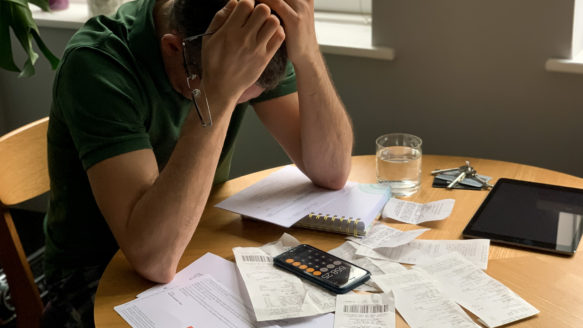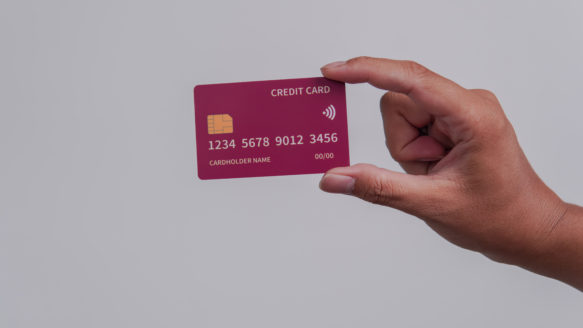
How to Pay Off Gambling Debt
Dealing with gambling debt can cause huge stress for an individual, their family and friends. At Money Mentors, we see many clients who have accumulated large gambling debts using multiple credit cards to fuel their gambling addiction. The steps on how to pay off gambling debt should include a full support plan with money management tools and counselling for the psychological component of gambling.
For most Canadians, gambling is an activity that can be enjoyed without harm. In a study released August 9 2022, Insights on Canadian Society noted that nearly two-thirds (64.5%) of Canadians aged 15 or older (18.9 million) reported gambling in the past year, and 1.6% of past-year gamblers (304,000) were at a moderate-to-severe risk of problems related to gambling.
If you, or someone you know, are in that percentage of people for whom gambling poses a substantial risk, it’s important that you get help for the gambling as well as financial assistance for the debt.
As our experienced Counsellor Lead Stacey Townsend says:
“While Money Mentors can help to alleviate the stress caused by debt, we always encourage our clients to seek extra help when gambling is the cause of their financial troubles. Without addressing the core issue, the behaviours are likely to repeat themselves and will often lead to a worse financial situation.”
Signs of problem gambling
People say you have a problem
Often, our behaviours and psychological states are more apparent to those around us than they are to ourselves. It’s very common for a spouse to pick up on something that is bothering their loved one before they have figured it out themselves. If you are unsure whether your gambling is problematic, ask those closest to you.
You lie about gambling
Lying is often a clear example of an addiction. If you find yourself deceiving others when you talk about how much you have lost or how often you have been to the casino, this is a sure sign that you have a gambling problem. Also, look out for when you lie to yourself. If you can, try to keep a journal and use it to track whether the things you tell yourself change depending on circumstances.
Have questions?
Need more information or want to talk to a certified financial counsellor for peace of mind? Let us help.
Call 1-888-294-0076 or fill out this form to speak with a certified financial counsellor. It’s free for all Albertans.
You experience emotional problems
Like other addictions, gambling can be a coping mechanism; a distraction from other problems in life. However, whilst a big win can keep problems at bay for a short while, a loss can bring those negative problems rushing back up to the surface.
Some emotional clues to look out for are:
- Withdrawing from those you are normally close with
- Feeling more anxious than usual, and losing interest in things easily
- Feeling bored, restless, or having outbursts of anger
- Having mood swings
- Feeling depressed or suicidal
How to get out of gambling debt
It can be overwhelming and scary to take the first step to get out of gambling debt, but with the right support and a simple plan, it is possible to live debt free. Money Mentors has helped thousands of Albertans pay off their gambling debt with the following strategies.
Get help from a credit counsellor
If you are reading this and are attempting to pay off your gambling debt alone, the first thing you should do is contact a non-profit credit counselling agency and get help from a credit counsellor. Why non profit? Well, you want to make absolutely sure that the advice you are receiving is unbiased. You can contact our office for help or visit the Credit Counselling Canada website to find non-profit credit counsellors in your province.
Create a budget to pay down gambling debt
Once you have a trusted credit counsellor by your side, the next step in paying off any and all debts is to make a workable budget. Get a good understanding of how much money is coming in and how much is going out. This will help you understand if lifestyle adjustments need to be made in order to bring spending under control.

Stretch Your Dollars
This workbook offers suggestions on how to budget and cut your expenses, boost your income and access useful information, services and programs. Download the booklet .
Set a savings goal
The psychological toll that problem gambling can inflict on an individual and their family is substantial. Therefore, it helps to have a “light at the end of the tunnel”. By setting a savings goal, and giving yourself something positive to work towards, you make it easier to stick with recovery efforts and avoid gambling as you pay off your debts.
Build a supportive network
Accountability is just as important when paying off debts as it is when dealing with an addiction. Try to have a network of supportive people around you to talk to when things get tough. We understand that this can be more difficult than it sounds. At the bottom of this page, we list a number of places where you can find support.
Use a money diary
As we have mentioned already, the process of dealing with gambling debt should be linked with a plan to improve your psychological wellness. One of the best ways to do this is to journal and begin a process of introspection. If the idea of writing down your thoughts and feelings feels a bit difficult, why not start with a money diary? This way, you can start writing down your purchases and becoming more familiar with the emotional states that led you to making them.
Why the Orderly Payments of Debt Program Works Well for Gambling Debt

Money Mentors’ Orderly Payment of Debts (OPD) program works well for gambling debt because it’s not a quick fix approach. Rather than looking for a way to cut corners, the OPD program helps you to pay your debts back in full, over a five year period. As the guide goes on to state: “the most successful outcomes are achieved when clients work through their debts, in tandem with problem gambling counselling.”
In ‘Problem Gambling: A Guide for Financial Counsellors’, the Centre for Addiction and Mental Health (CAMH) cautions against debt solutions for problem gamblers that involve paying off debts as quickly as possible.
“People who are caught up in gambling are often accustomed to operating in the short term, financially and otherwise. They are likely to access services when financial pressures are most intense. If those pressures are relieved, even temporarily, their motivation to work on their gambling problem may suffer and they may feel free to return to gambling. Manageable repayment of gambling debts, not immediate debt relief, should be the key priority. Working toward reducing debt can help reduce a trigger to gamble.” (CAMH, 2014)
Getting the right help
Regardless of how you choose to pay off your gambling debts, the most important thing is that you take that first step in asking for help. All of our credit counsellors here at Money Mentors have experience guiding people in paying off their debts, no matter what caused them. As a non-profit, our advice is unbiased and will best suit your needs. We offer free credit counselling sessions, so if you need to chat, pick up the phone and give us a call.
Alberta resources on how to stop gambling
Figuring out how to stop gambling is a process that won’t happen overnight and often requires additional resources and support. Working with a credit counsellor and with professionals who can help you acknowledge and support your gambling addiction will provide the best path forward for a life free from gambling. Below are Alberta Resources to help with gambling addictions.
Alberta Health Services – Addiction Helpline
Alberta Health Services – Residential Gambling Treatment
Centre for Addiction and Mental Health – Problem Gambling
Have questions?
Need more information or want to talk to a certified financial counsellor for peace of mind? Let us help.
Call 1-888-294-0076 or fill out this form to speak with a certified financial counsellor. It’s free for all Albertans.








